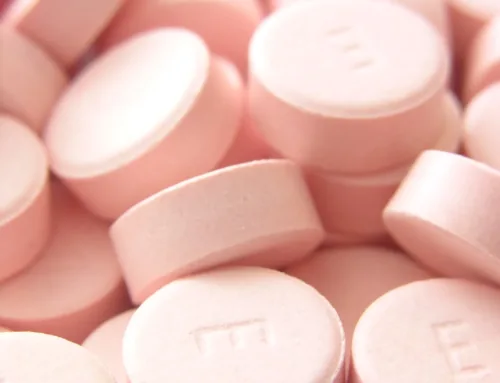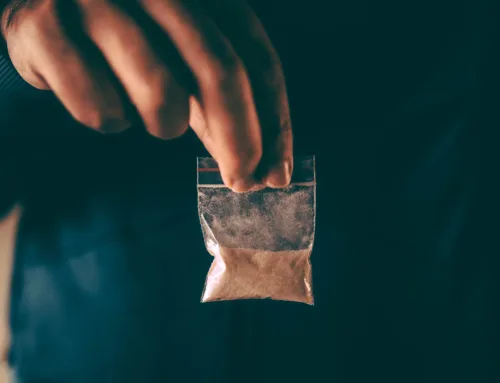Understanding Xylazine: The “Sleep Agent” That’s Emerging in Street Drugs
Over the past few years, a new and dangerous drug has entered the street supply — one that many users don’t even realize they’re taking. Xylazine, a veterinary tranquilizer nicknamed “tranq” or the “sleep agent,” is increasingly being mixed with opioids like fentanyl and heroin, creating an alarming rise in overdoses and long-term health complications.
At Freedom Detox & Recovery Center, we’ve seen firsthand how unpredictable and deadly this combination can be. Understanding what xylazine is, how it works and why it’s appearing more often can help you or your loved ones stay informed — and safe.
What Is Xylazine?
Xylazine is a non-opioid sedative used by veterinarians to calm large animals such as horses or cattle. It was never approved for human use. However, in the last few years, drug dealers have begun mixing xylazine with fentanyl, cocaine and other illicit substances to intensify the sedative effects and stretch their supply.
The Drug Enforcement Administration (DEA) and the Centers for Disease Control and Prevention (CDC) have both sounded the alarm: xylazine is now found in over 30% of seized fentanyl samples nationwide, especially in the Northeast and Southeast. What makes it particularly dangerous is that it doesn’t respond to naloxone (Narcan), the medication that reverses opioid overdoses.
Why Xylazine Is So Dangerous
The effects of xylazine are similar to opioids in some ways, but far more unpredictable. Users experience:
- Extreme sedation or “nodding off” for long periods
- Slowed breathing and heart rate, sometimes leading to unconsciousness
- Severe skin ulcers or abscesses, often developing at injection sites
- Memory loss, disorientation or confusion
Because xylazine is not an opioid, it does not trigger a response from overdose reversal drugs like Narcan. This means that someone who appears to have overdosed may not revive after administration, leaving emergency responders struggling to stabilize them.
The combination of fentanyl and xylazine is especially deadly. Fentanyl depresses the central nervous system, while xylazine suppresses breathing and heart rate. Together, they create a perfect storm that can quickly lead to coma, respiratory failure or death.
The Rise of Xylazine in the Southeast
Originally, xylazine contamination was most common in Philadelphia and New York, but it has now spread across the U.S., including throughout the Carolinas, Georgia and Virginia. Local health departments are warning that many people who believe they’re using fentanyl or heroin are unknowingly taking xylazine-laced drugs.
Even those who avoid opioids are at risk — reports have shown xylazine appearing in cocaine, methamphetamine and counterfeit prescription pills. Because it’s used as a filler or cutting agent, there’s no way to know how much xylazine is in a dose until it’s too late.
Can You Detox from Xylazine?
Detoxing from xylazine requires medical supervision, especially since withdrawal symptoms can overlap with those from opioids. Symptoms may include:
- Anxiety or agitation
- Restlessness and muscle tremors
- Sleep disturbances
- Depression and fatigue
- Intense cravings for substances used alongside xylazine
Since xylazine is rarely used alone, detox typically involves treating polysubstance withdrawal — managing symptoms from both opioids and sedatives. At Freedom Detox & Recovery Center, our licensed medical team monitors clients around the clock, ensuring a safe, stable transition through the withdrawal phase.
We provide medication-assisted care, emotional support and aftercare planning to help clients move beyond detox toward long-term recovery.
The Importance of Seeking Help Early
One of the most dangerous aspects of xylazine use is that many people don’t realize they’ve been exposed. If you or someone you know is showing symptoms such as unusual sedation, unexplained skin wounds or recurring blackouts, it’s critical to seek help immediately.
Early intervention can prevent long-term health damage, reduce the risk of overdose and increase the chances of recovery.
Safe, Compassionate Detox at Freedom Detox
Detoxing from substances contaminated with xylazine can feel frightening, but you don’t have to face it alone. Freedom Detox offers a compassionate, medically guided environment to help individuals safely manage withdrawal and begin their recovery journey.
Our team understands the complexities of today’s drug supply and the importance of individualized care. Whether you’re struggling with fentanyl, xylazine, or other substances, we’re here to provide safety, comfort, and hope for the future.
Call Freedom Detox today to learn how we can help you or a loved one take the first step toward healing.





